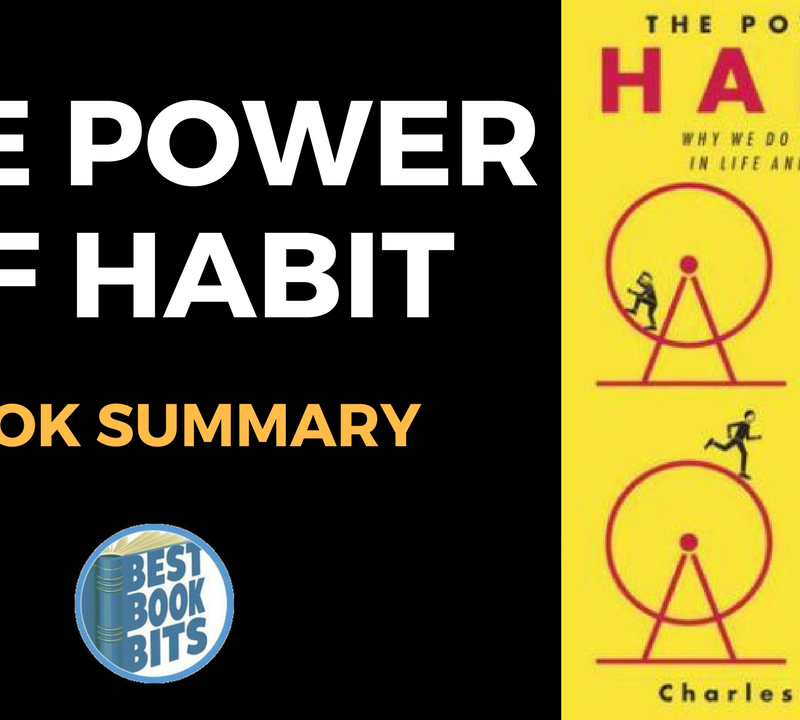★DOWNLOAD THIS FREE PDF SUMMARY HERE https://go.bestbookbits.com/freepdf
? MY FREE BOOK TO LIVING YOUR DREAM LIFE” https://go.bestbookbits.com/first-seven-steps
? SPONSOR BESTBOOKBITS BY USING PATREON https://www.patreon.com/bestbookbits
? SUPPORT BESTBOOKBITS BY CLICKING THE LINKS BELOW
150 PDF Summaries: https://go.bestbookbits.com/150
Coaching Program: https://go.bestbookbits.com/coaching
Subscribe to My Channel: https://www.youtube.com/bestbookbits?sub_confirmation=1
Website: https://bestbookbits.com
Instagram: https://www.instagram.com/bestbookbits
Spotify: https://open.spotify.com/show/0q8OW3dNrLISzyRSEovTBy
Facebook: https://www.facebook.com/michaelbestbookbits
Book Club: https://bestbookbits.com/bookclub/
Mailing List: https://mailchi.mp/d1dfc1907cdb/bestbookbits
Vanderkam acknowledges that mornings can be a rushed and chaotic time of day, and starting your day out like this is the reason that so many people live with the understanding that they simply do not have enough time.
Successful people, Vanderkam explains, utilise the early mornings to their advantage, it’s the time of the day where they have complete control over their schedule. Getting up early to tackle a few of your key priorities or favourite hobbies is an excellent way to focus on these tasks without distraction. As soon as other people are awake in your household, or people who try to contact you are awake, you are opening yourself up to distractions.
“If it has to happen, then it has to happen first”. If you leave the important tasks until the end of the day they’re unlikely to get done.”
This is why a lot of successful people, will exercise before 6am. This way, they can tick it off and get on with the day. Leaving it until the end of the day only opens up more opportunities to skip it or give it a miss.
Vanderkam describes willpower as similar to a muscle. Just like your own muscles, over-use will lead to burn-out, and the correct use and practice will lead to more strength. If you start your day by getting some important things done, you can ensure that your willpower is at it’s strongest, the likelihood is that by 5pm you willpower is starting to wane.
The key is to work on your routines and habits. Initially, willpower will be essential, but eventually, an automation will happen and they will become habitual. All successful people will turn their important tasks into habits.
Important But Not Urgent Things
”The best morning rituals are activities that, when practiced regularly, result in long-term benefits.”
There are 3 key things Vanderkam recommends you try and achieve in the mornings.
- Complete the key work tasks first thing in the day. By doing this you are avoiding the distraction of emails, meetings, and other people. Select one important task and get that done first. In doing this, you are nurturing your career.
- Vanderkam recommends you utilise your mornings to spend some time with your loved ones, whether it’s sitting down to breakfast with your kids or taking 10 minutes to drink a coffee with your partner. Create a routine with a few moments of quality time together. This allows you to nurture your relationships.
- Finally, you should ensure that you are nurturing yourself. Usually in the form of exercise, get this done in the morning so you’ve started your day on the right foot and putting yourself first.
Change up your mornings
There’s a couple of key steps you can take to take your morning from a chaotic rush to a time you actually look forward to.
Firstly, Vanderkam recommends that you actually track your time throughout the day. Track a few days by keeping a journal to figure out what points in the day are most likely wasted time. Reflect on this and make the changes required to utilise your time more effectively.
Next up, take a step back and consider what your perfect morning would look like. This is going to be entirely individual so Vanderkam can’t tell you what to visualise. But this exercise will help you set your goals and have something to aim for.
Another time-focused tip, Vanderkam encourages you to consider the logistics of your morning activities. Work out the timing of everything you need to get done in the morning, for example, a shower may take you 10 minutes including drying off and getting dressed. Consider this timing when you decide what time you need to wake up in the morning. And use that time to decide what time to go to sleep the evening before.
As discussed previously, the key is building the habit. Turning this new approach, these new tasks into a ritual, something you’ll do automatically. Vanderkam suggests you start small and introduce things one or two at a time. Don’t try to radically overthrow your whole routine with 10 new tasks, it will be too overwhelming.
Finally, Vanderkam acknowledges that things change, your routine right now might work for you, but in 5 years it may not be applicable anymore. You need to accept this and have the ability to adapt.
WHAT THE MOST SUCCESSFUL PEOPLE DO ON THE WEEKEND
How many of us are wishing our time away holding out for the weekend? And then the weekend arrives, it flies by, and we look back having accomplished almost nothing? It’s an easy trap to fall into.
Vanderkam points out, that between the time you knock off work at 6pm on Friday, and the time you wake up at 6am on Monday, you actually have 60 whole hours. And even if you sleep for 24 of those 60 hours, you’re still left with 36-hours. That’s almost the same number of hours you will spend working in a full-time job.
Vanderkam suggests, that just as you have ‘working hours’ when you are online, available and working, you should essentially ‘clock-off’ or go ‘off-the-grid’ on the weekends to allow some rejuvenation.
How to Plan a Weekend
Vanderkam suggests that you actually ask yourself what you want to do more of with some extra time? Create a weekend dream list, things you want to get done during Saturday and Sunday and allocate a slot for them. E.g. Dinner out with a loved one on Saturday night. Yoga and coffee with a friend on Sunday morning.
Vanderkam’s Six Tips for Planning Your Weekend:
- Dig deep – try and remember the things you used to love doing, even as a kid. Just because you haven’t done something in years, doesn’t mean you can’t do it now.
- Use the mornings in the weekends too– often this is wasted time, use them! Don’t sleep in till 11!
- Take the opportunity to create fun traditions – e.g. Pancakes on Saturday mornings or heading to the local farmer’s markets on Sunday for a coffee.
- Schedule downtime for yourself, it doesn’t have to be all go. There’s nothing wrong with spending an hour napping in the sun or reading on the couch.
- Make time to explore your local and distant surroundings – go to a new park for a walk, or take a train trip to a nearby city for the day.
- Sunday evenings do not have to be a wasteful time where you’re dreading the following day. Plan something fun to do on Sunday evenings.
A top tip from Vanderkam is to use some time on the weekend to schedule your week ahead. Add any appointments, tasks, chores, and errands that will need to be done alongside your usual working days.
”What the most successful people know about weekends is that life cannot happen only in the future. It cannot wait for some day when we are less tired or less busy.”
★DOWNLOAD THIS FREE PDF SUMMARY HERE https://go.bestbookbits.com/freepdf
? MY FREE BOOK TO LIVING YOUR DREAM LIFE” https://go.bestbookbits.com/first-seven-steps
? SPONSOR BESTBOOKBITS BY USING PATREON https://www.patreon.com/bestbookbits
? SUPPORT BESTBOOKBITS BY CLICKING THE LINKS BELOW
150 PDF Summaries: https://go.bestbookbits.com/150
Coaching Program: https://go.bestbookbits.com/coaching
Subscribe to My Channel: https://www.youtube.com/bestbookbits?sub_confirmation=1
Website: https://bestbookbits.com
Instagram: https://www.instagram.com/bestbookbits
Spotify: https://open.spotify.com/show/0q8OW3dNrLISzyRSEovTBy
Facebook: https://www.facebook.com/michaelbestbookbits
Book Club: https://bestbookbits.com/bookclub/
Mailing List: https://mailchi.mp/d1dfc1907cdb/bestbookbits
WHAT THE MOST SUCCESSFUL PEOPLE DO AT WORK
“If you make certain choices in your work, though, if you develop certain disciplines and invest your time instead of squandering it, you can do more with the time you have.”
Vanderkam suggests you ask yourself a few of the following questions:
- Do you enjoy work?
- Is there a better way that you can be progressing in your career so that your work is more enjoyable?
- Is there a better way to use your working hours so that when you are working you are producing the best possible results?
Vanderkam also feels strongly that we shouldn’t brag about how many hours we work in any given day or week as a direct indication of how committed we are or how successful we are in our work. It doesn’t matter how many hours you are there, it matters what you get done in those hours.
DISCIPLINE 1: Mind Your Hours
- Your time is literally being used up as we speak. There’s no pausing, stopping or rewinding it, you can’t renew it once you’ve used it all up? We all receive the exact same number of hours each day/week/month/year. You’ve got to decide how best to use it.
- One way to try and establish how you’re currently using your time and find opportunities for improvements is to keep a time log. Write down how long different tastes take you and how they fit into your day. Then you can evaluate whether you are spending too much time on certain tasks.
DISCIPLINE 2: Plan
- The first step is to plan to plan. Dedicate a slot of time every week, either at the beginning or the end, to sit down, and schedule your week ahead.
- Establish some key goals, both short-term and long-term, and plan out how you are going to achieve them.
- Don’t rely on your memory or your own mind, anything you’ve got going on in your head, write it down and make it into a plan.
For example, every Sunday Vanderkam will sit down and write her ‘priority list’. She considers all of her goals and plans out what the next week will hold in relation to achieving these goals. This list will include everyday work tasks as well as small steps to achieving those long term goals. Starting with Monday, Vanderkam will be quite tight with her schedule, and she’ll keep Tuesday through Friday a bit looser. Then as each day closes, she’ll take a few moments to fine tune the next days schedule. This way she ensures that almost everything gets achieved by Friday.
DISCIPLINE 3: Make Success Possible
- Vanderkam emphasises the importance of being realistic with your schedule. Despite the hundreds of ideas swirling around in your head, you can’t schedule them all for Mondays. You have to find a pace that suits your lifestyle and is maintainable.
- Vanderkam explains that successful people look at their to-do lists as much more than a list, they become a physical contract. Anything written down on the list will be completed. That’s a promise.
- Obviously, Vanderkam acknowledges that things happen, life happens, and sometimes your day isn’t going to go quite as planned. But examining your priority list and creating a system that works for you is the key to remaining accountable.
- Vanderkam recommends setting 6 priorities per day. 3 to be completed that day, and the other 3 can be small steps working towards long-term goals.
- If required, set some accountability to your goals. Tell someone about them and get them to ask you regularly to check your on track
- Creating a mental trigger is a good idea, for example, whenever you see the number 11 (could be on a clock, on an email etc.) consider it time to check your to-do list to make sure you are on track.
DISCIPLINE 4: Know What Works
- Acknowledge what tasks distract you and take your attention away from your priorities. Whether this be checking emails or doing work that you should have delegated. And work on removing these distractions from your day.
- Schedule breaks regularly, this is to avoid burn out. Try a walk around the block, or some lunchtime stretching. This will allow you to take a mini mental break and return feeling refreshed and more productive.
DISCIPLINE 5: Practice
- Everyone needs to practice, whether you are a sportsperson, business person or a musician. You have to practice your profession in order to get better.
- Don’t just rely on auto-pilot
- Take a quick review of the things you do regularly. Dedicate some time to practice and improve upon these skills
- Remember to critique yourself and be open to constructive criticism from others.
DISCIPLINE 6: Pay In
“It is no longer sufficient to be employed—one must remain employable. That means monitoring that excellent concept of career capital.”
- Vanderkam uses the term career capital to describe someone’s total experience, knowledge, personality, character and network. It is the sum of all things that are part of you and therefore make you useful in your field.
- If you’re lucky enough to have a high career capital, you can cash it in to take a leap in your career ladder, or to take a break without affecting your ability to earn a living. To be successful is to ‘pay into this account’ daily.
- The way you can pay into your account can be in any form, for example, a website or a blog, where you publicise yourself and create your own brand.
- Another way to pay in is to work on building a network around you, full of knowledgeable people who are loyal to you and have your back.
”Real career capital comes from having lunch, and sharing your network, with someone who’s just been fired from a job she loved. These are the moments that matter.”
- Vanderkam points out that you may not feel like you need to cash in your career capital right now, and you might never need to, but it’s something worth cultivating and growing. You should never be without it.
DISCIPLINE 7: Pursue Pleasure
”As she puts it, “I can’t imagine what it would be like to live for the weekend.”
- Vanderkam explains that this is the key, successful people enjoy their work just as much as they enjoy their weekends.
- The simple act of making progress on a task or working towards a goal actually brings you joy, the more productive you can be, the more joy you will feel.
- Vanderkam explains that successful people are constantly evaluating what parts of their day bring them pleasure, and which parts do not. They focus on spending more time on pursuing their pleasures and less time on other tasks, whether this be by delegation or automation or simply deleting certain tasks out of your day.
CONCLUSION
Key Takeaways
- There are 7 key disciplines:
-
- Mind your hours – understand how you use your time and make improvements.
- Plan – planning is essential, make time to plan.
- Make success possible – make it easy on yourself, be realistic. Set 6 priorities each day, 3 for immediate completion, and 3 longer-term.
- Know what works – it’s not a one-size fits all, understand what works for you and fine-tune your schedule appropriately.
- Practice – no matter your discipline, practice it regularly. Continue learning.
- Pay into your career capital – you never know when you might need it
- Pursue pleasure – do the things you enjoy.
★DOWNLOAD THIS FREE PDF SUMMARY HERE https://go.bestbookbits.com/freepdf
? MY FREE BOOK TO LIVING YOUR DREAM LIFE” https://go.bestbookbits.com/first-seven-steps
? SPONSOR BESTBOOKBITS BY USING PATREON https://www.patreon.com/bestbookbits
? SUPPORT BESTBOOKBITS BY CLICKING THE LINKS BELOW
150 PDF Summaries: https://go.bestbookbits.com/150
Coaching Program: https://go.bestbookbits.com/coaching
Subscribe to My Channel: https://www.youtube.com/bestbookbits?sub_confirmation=1
Website: https://bestbookbits.com
Instagram: https://www.instagram.com/bestbookbits
Spotify: https://open.spotify.com/show/0q8OW3dNrLISzyRSEovTBy
Facebook: https://www.facebook.com/michaelbestbookbits
Book Club: https://bestbookbits.com/bookclub/
Mailing List: https://mailchi.mp/d1dfc1907cdb/bestbookbits













